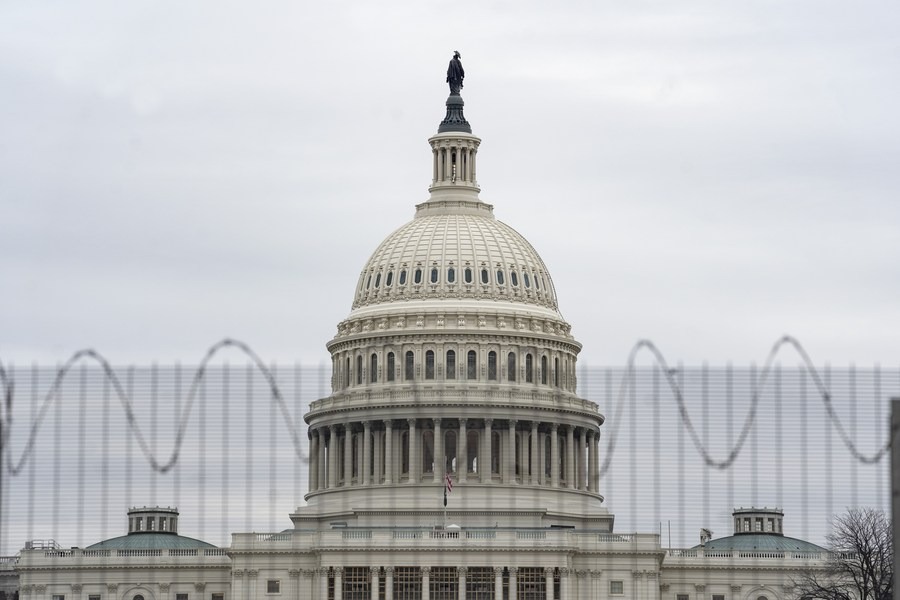Coming apart at the seams
The world has entered an extremely fluid period of history in which a new bipolar Cold War is not the only option


Up until recently it was widely taken as a given fact that the international system was steadily moving toward a new bipolar Cold War. In this context the Euro-Atlantic West was supposed to be uniting to confront Russia and especially China. However, it has become clear that this neo-Cold War narrative does not match the facts or trends.
Of course, there have been important developments recently, the most important among these being the creation of AUKUS, the new three-way strategic alliance between Australia, the United Kingdom and the United States, which could be thought to signal the beginning of a new Cold War.
But the strategic alignment of the whole of the Euro-Atlantic West does not appear as a geopolitical reality; rather, there are increasing fractures in the Western geopolitical architecture. For example, just a few days after the declaration of AUKUS, France and Greece signed a defense agreement including a mutual defense pact which can be properly assessed as unique in modern European history.
France and Greece have signed an agreement which provides military assistance to each other in case one of the two signatories is attacked by a third state. The agreement, as Greek Prime Minister Kyriakos Mitsotakis clearly stated, has been concluded with Turkey in mind. Both Greece and France are North Atlantic Treaty Organization members and this evolution presents a startling fact. For the first time in NATO history, there is a military alliance signed between NATO member states directed against another NATO member. Thus, the unity of the Western alliance is experiencing a rupture for the first time in its history.
AUKUS meanwhile has effectively created a kind of geopolitical sect functioning on the basis of ethnic and historical-cultural ties. France will not wish to become a mere complementary actor to an Anglo-Saxon club, especially given its centuries-long historic rivalry with the UK and taking into consideration its aspirations to act as an autonomous pole in the international system. This is why France has formed the military alliance with Greece, which provides for Greece to acquire three Belharra frigates for the Hellenic Navy.
At the same time, if we examine the delicate balance inside the European Union, France is competing with Germany for influence. Given the often-problematic history between France and Germany, that could pose a considerable strategic challenge for France. It is in this context of the European inter-state balance that the alliance between France and Greece and the creation of an open architecture allowing it to be complemented by other states as well, provides a great chance for France to obtain an autonomous and leading role in the international system.
Turkey on its part is already acting as an autonomous geopolitical entity, trying to create an intermediate space between the West and the East in Central Eurasia through its increased interaction and relations with states such as Azerbaijan and the other Turkic speaking countries of Central Asia and Pakistan. Turkey is also constantly upgrading its relations with Russia, despite the historic rivalry between the two states. Turkish cooperation with Russia is occurring despite tensions between the two countries in Syria and elsewhere and while Russophobia is steadily increasing in the West. Therefore, the simplified pattern that is dominant in media portrayals of the united Euro-NATO powers attempting a strategy of double containment directed against both Russia and China does not accord with the real-world situation. In reality, the structure of the Western world is experiencing a state of increased fragility.
This situation is amplified by the suspicion many European states feel toward Germany due to the historical experience of German occupation during World War II.Additionally, many states in Eastern Europe are attempting to regain national control of vital state functions and aspects. In Poland, for example, the Constitutional Court decided that national legislation overrides EU legislation when there is a legal conflict. This is a sort of revolt against the central control of Brussels and may herald a Polish exit from the EU. Feeling trapped between Berlin, Brussels and Anglo-Saxon geopolitical plans, Eastern European countries are seeking a way out.
Of course, many states in the EU, with Poland and the Baltic Republics leading the way, are overtly anti-Russian; still, this does not lead self-evidently to an anti-China policy. On the contrary, it is possible that these states will attempt to strengthen their ties with China so as to create a counterweight to Sino-Russian cooperation. Feeling threatened by Germany's economic dominance and Brussels's bureaucracy, many EU countries view the powerful Chinese economy as a factor that can avert their being crushed between the twin threats of the West and the East. They view China as both an economic and geopolitical way out.
Finally, Chinese foreign policy based on the principle of non-interventionism in the internal affairs of other states is attractive to the Central and Eastern European countries.
As a general conclusion, we might say that contrary to the dominant narrative, according to which we are moving toward a new bipolar system, in which the united Euro-Atlantic West has adopted a double containment strategy against both Russia and China, in reality the Western geopolitical architecture is showing increased fractures, thus reinforcing the possibility that the Central and Eastern European countries will strengthen their ties with China.
Nothing is certain. We find ourselves in the midst of a receding world and the creation of a new one. This new world has not yet been fully formed and a new Cold War is not the only choice.
The author is professor of Geopolitics and Modern Weapon Technologies and director of War Theory and Analysis Sector at the Hellenic Military Academy. The author contributed this article to China Watch, a think tank powered by China Daily. The views do not necessarily reflect those of China Daily.
Contact the editor at editor@chinawatch.cn


































